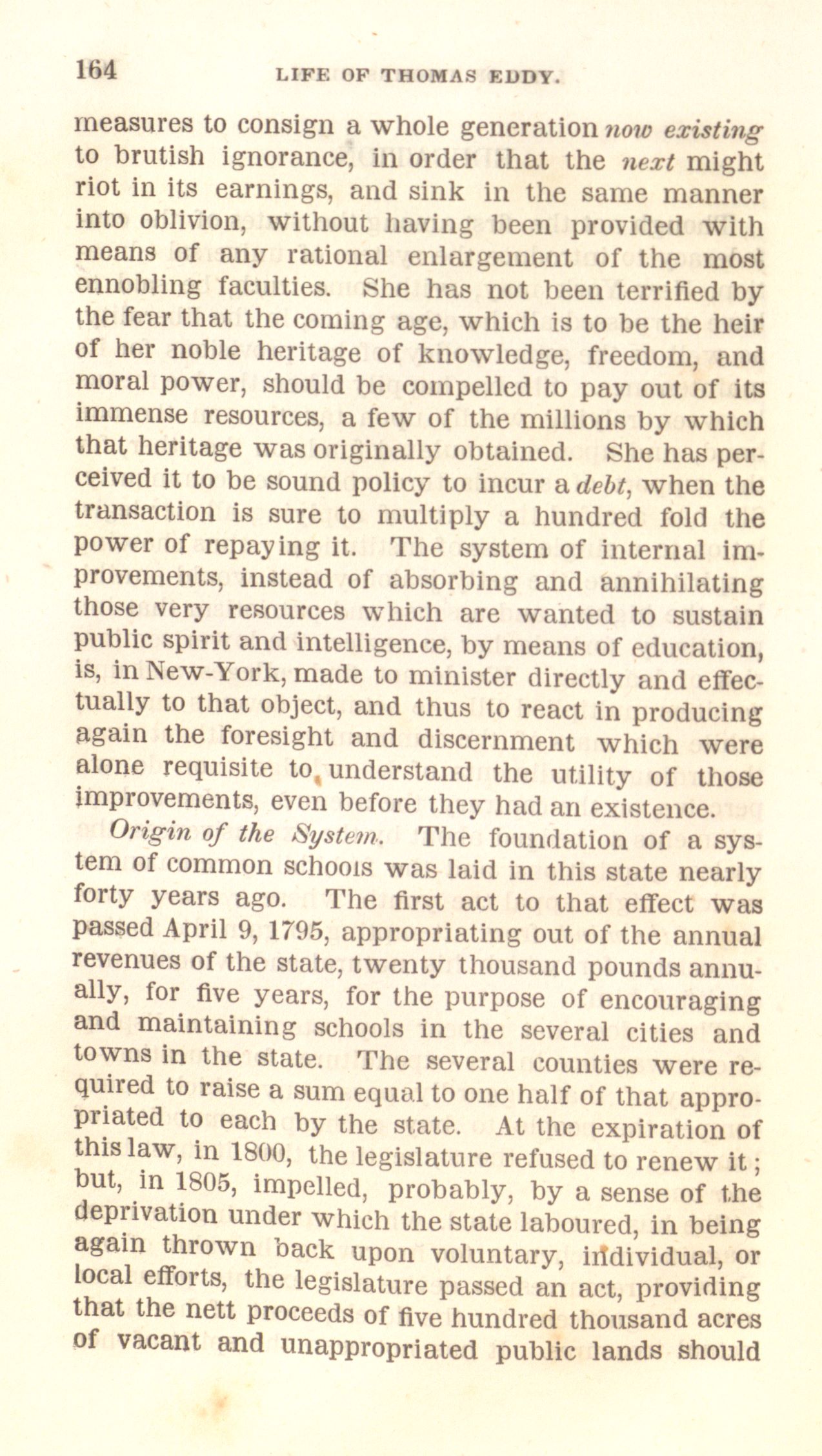measures to
consign a whole generation now existing
to
brutish ignorance, in order that the next
might
riot in its earnings, and sink in the same manner
into oblivion,
without having been provided with
means of any rational enlargement of the
most
ennobling faculties. She has not been terrified by
the fear that
the coming age, which is to be the heir
of her noble heritage of knowledge,
freedom, and
moral power, should be compelled to pay out of its
immense
resources, a few of the millions by which
that heritage was originally
obtained. She has per-
ceived it to be sound policy to incur a debt, when the
transaction is sure to multiply a
hundred fold the
power of repaying it. The system of internal
im-
provements, instead of absorbing and annihilating
those very
resources which are wanted to sustain
public spirit and intelligence, by
means of education,
is, in New-York
tually to that object, and thus to react in producing
again the foresight and discernment which were
alone requisite to, understand the utility of those
improvements, even before they had an existence.
Origin of the System. The foundation of a sys-
tem
of common schools was laid in this state nearly
forty years ago. The first
act to that effect was
passed April 9, 1795,
appropriating out of the annual
revenues of the state, twenty thousand
pounds annu-
ally, for five years, for the purpose of encouraging
and
maintaining schools in the several cities and
towns in the state. The
several counties were re-
quired to raise a sum equal to one half of that
appro-
priated to each by the state. At the expiration of
this law, in
1800, the legislature refused to renew it;
but,
in 1805, impelled, probably, by a sense of the
deprivation under which the state laboured, in being
again thrown back upon
voluntary, iridividual, or
local efforts, the legislature passed an act,
providing
that the nett proceeds of five hundred thousand acres
of
vacant and unappropriated public lands should

